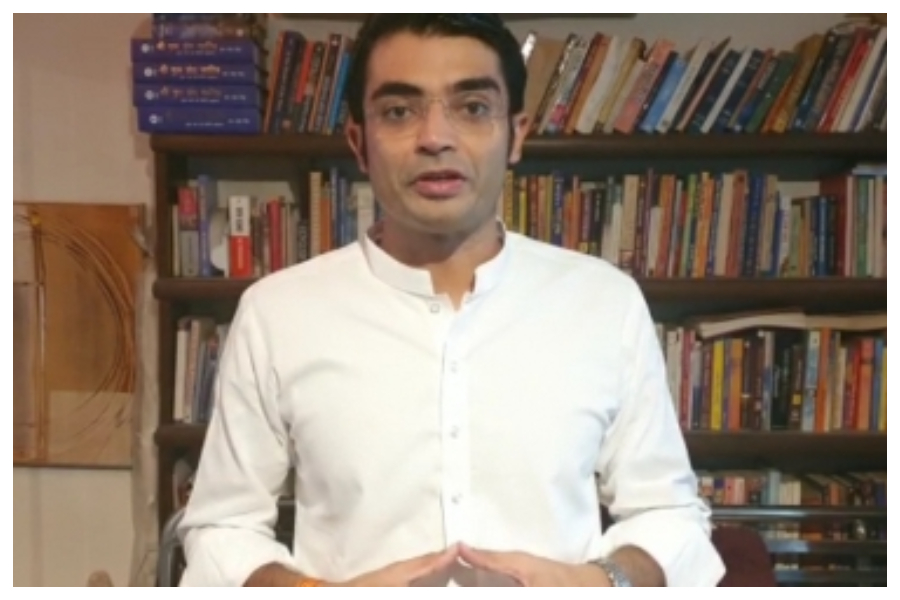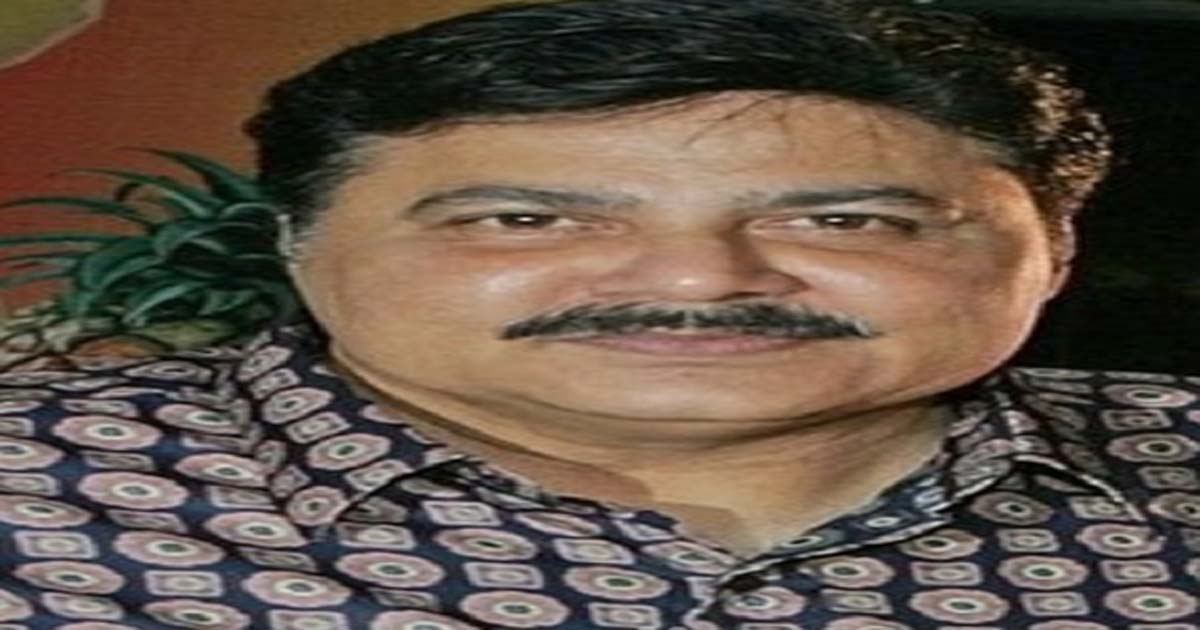Politics
Involve Central agencies in Mohali blast case, Aam Admi Party government incapable: Shergill to Amit Shah

A day after the blast in Mohali, Congress spokesperson Jaiveer Shergill on Tuesday said the Punjab government was incapable of handling such a probe and urged the Union Home Minister Amit Shah to involve the Central agencies.
Shergill while hitting out on the Punjab government, said, “I urge Union Home Minister Amit Shah to engage Central probe agencies in the matter as AAP govt is not capable to handle so, nor does it have the right intent…AAP govt in Punjab is harmful for state’s security,” Shergill said.
He alleged that the AAP’s Punjab government was proving to be injurious to peace and security of the state.
“High time Bhagwant Mann ji starts acting like “Mukh Mantri” of Punjab rather than “Kejriwal Prachar Mantria!! Attack on Police office in Mohali should serve as alarm bell/warning sign for administration,” he tweeted.
Meanwhile, Chief Minister Bhagwant Mann on Tuesday in his first comment, tweeted, “The police is investigating the blast in Mohali. Whoever tried to spoil the atmosphere of our Punjab will not be spared.”
A high alert has been declared across the state.
A grenade hit the Intelligence bureau headquarters in an upscale locality on Monday evening, shattering windowpanes on the third floor of the building.
“The RPG was fired from a distance by unidentified persons who are believed to have fled in a vehicle. A Swift car was spotted at the spot,” a police officer told IANS, adding “before the attack a recce was carried out by two miscreants”.
A team of the National Security Guard (NSG) is expected to reach the spot later in the day.
The attack was aimed to harm high-level Organised Crime Control Unit (OCCU) officials who have offices in the Intelligence wing headquarters.
Entertainment
Satish Shah, who tickled everyone with his comic timing, is no more; he died of kidney failure

New Delhi, Oct 25: Actor Satish Shah, known for his roles in comedy films, has passed away. The news of his death has sent shockwaves among fans. Indian producer Ashoke Pandit confirmed the actor’s death. He shared an emotional post on social media informing about the actor’s demise.
Indian producer Ashoke Pandit posted a photo of Satish Ravilal Shah on Instagram and wrote, “It is with great sadness and shock that we inform you that our dear friend and a wonderful actor, Satish Shah, passed away a few hours ago due to kidney failure. He was taken to Hinduja Hospital, where he breathed his last. This is a huge loss for our industry.” Ashoke Pandit also shared the actor’s home address on social media.
Satish Shah was born into a Gujarati family. He was a face of television and cinema that brought laughter and laughter. He distinguished himself with his unparalleled acting. Whether it was a small role on TV or a major role on screen, he played them with full dedication.
Shah began his career in 1970 with the film “Bhagwan Parshuram,” but the film failed to bring him recognition. He then appeared in Arvind Desai’s 1978 film “Ajeeb Dastaan.” His role in this film was small, followed by the 1983 film “Jaane Bhi Do Yaaron,” which proved to be a milestone in his career.
Satish Shah was last seen in the film “Humshakals,” which was released in 2014. The film starred Saif Ali Khan, Riteish Deshmukh, and Ram Kapoor in lead roles. The actor played a small supporting role in the film. The film was directed by Sajid Khan and didn’t perform well on screen.
In his personal life, Satish Shah was a very simple person. He didn’t like attending parties and preferred home-cooked food. In an interview, the actor revealed, “I am one of the few people who loves home-cooked food, and the food at my home is as good as any party food.”
Crime
Rave party serving liquor in dry-state Gujarat raided; 15 detained

Ahmedabad, Oct 25: Police raided a rave party in Gujarat’s Ahmedabad, leading to the detention of 15 people who were consuming alcohol in the dry state.
The Bopal Police acted after receiving a tip-off about the party at Zephyr Farmhouse near Shilaj, where both liquor and drugs were reportedly being used.
Upon reaching the venue, police found 15 individuals, including 13 foreign nationals from Nigeria, Mozambique, Kenya, and other African countries, alongside two Indians, intoxicated.
Investigations revealed that the organisers had printed special passes for the party, advertising “unlimited alcohol”, showing the scale and planning behind the event.
All 15 attendees have been detained, a case has been registered, and further inquiries are underway to identify the main organisers, the farmhouse owner, and the source of the liquor in a state where alcohol is banned.
Gujarat has maintained a strict prohibition on alcohol since 1960 under the Gujarat Prohibition Act, 1949, which bans the sale, consumption, and manufacture of liquor across the state.
The law applies to all forms of alcoholic beverages, including Indian-made foreign liquor (IMFL), country-made liquor, and spirits. Exceptions exist only for medicinal, industrial, and export purposes, subject to government permission. Violations of the Act carry severe penalties, including imprisonment, fines, and seizure of property involved in the illegal trade.
Despite Gujarat’s strict prohibition laws, the illegal liquor trade remains a significant issue.
In 2024, authorities seized approximately 82 lakh bottles of liquor valued at Rs 144 crore across the state. Ahmedabad alone accounted for over 4.38 lakh bottles, with 2,139 cases involving IMFL and 7,796 cases related to country-made liquor. Notably, the State Monitoring Cell (SMC) registered 455 cases, confiscating liquor worth Rs 22.5 crore and total items valued at nearly Rs 52 crore.
In a significant operation, the SMC seized over 8,500 bottles of foreign-made liquor worth Rs 1.19 crore in Chotila taluka, Surendranagar.
Additionally, in a mid-sea raid off Una, Rajkot, authorities intercepted a boat carrying liquor worth Rs 25 lakh.
These seizures reflect ongoing efforts to combat the illegal liquor trade, which often involves smuggling from neighbouring states like Maharashtra and Madhya Pradesh.
Crime
Police arrest accused Prashant Bankar in Maharashtra doctor’s suicide case

New Delhi, Oct 25: Police in Maharashtra’s Satara district arrested one accused on Saturday in connection with the death of a female doctor who allegedly committed suicide after being repeatedly raped by a police officer and being pressurised by an MP to falsify medical reports of accused in cases.
According to officials, the arrested person has been identified as Prashant Bankar, the son of the doctor’s landlord whose name was mentioned in her four-page suicide note.
The deceased doctor, a native of Beed district, was posted as a medical officer at a government hospital in Phaltan, Satara. On Thursday night, she was found hanging in a hotel room under mysterious circumstances. Shockingly, she had written a suicide note on her palm, naming Sub-Inspector Gopal Badane and Prashant Bankar, accusing the police officer of rape and Prashant of mental harassment.
After Prashant’s arrest, police said he will be produced before the court and his custody will be sought for further investigation. Meanwhile, Sub-Inspector Badane has been suspended, and a detailed enquiry is underway. Both accused have been booked at the Phaltan Police Station. Satara SP Tushar Doshi confirmed that the rape allegations and Prashant’s role are being thoroughly investigated.
The female doctor who allegedly committed suicide left behind a detailed four-page suicide note apart from the inked note on the palm of her hand, stating that a police officer raped her four times and exerted pressure on her to issue fake fitness certificates for accused persons in police cases. It has now emerged in her note that she was allegedly under pressure not only from police officials but also from a Member of Parliament (MP) and his personal assistants.
The woman doctor, who worked as a medical officer at the Phaltan sub-district hospital, wrote on her palm that she had been raped four times by Sub-Inspector Gopal Badane and subjected to mental and physical abuse for over five months.
Originally from Beed district, the doctor had been working at the hospital for 23 months.
Gopal Badane is a police officer, while Prashant Bankar is the son of the landlord in the house where the doctor lived.
She had complained 21 times to various authorities, but no action was taken against her tormentors.
Recounting a particular instance in her note, the doctor said she had refused to issue a certificate and two personal assistants of an MP had come to the hospital and made her speak to him over the phone. She stated in her note that during that conversation, the MP had threatened her indirectly.
Her cousin also made similar allegations about the doctor being made to falsify medical certificates.
-

 Crime3 years ago
Crime3 years agoClass 10 student jumps to death in Jaipur
-

 Maharashtra1 year ago
Maharashtra1 year agoMumbai Local Train Update: Central Railway’s New Timetable Comes Into Effect; Check Full List Of Revised Timings & Stations
-

 Maharashtra1 year ago
Maharashtra1 year agoMumbai To Go Toll-Free Tonight! Maharashtra Govt Announces Complete Toll Waiver For Light Motor Vehicles At All 5 Entry Points Of City
-

 Maharashtra1 year ago
Maharashtra1 year agoFalse photo of Imtiaz Jaleel’s rally, exposing the fooling conspiracy
-

 National News1 year ago
National News1 year agoMinistry of Railways rolls out Special Drive 4.0 with focus on digitisation, cleanliness, inclusiveness and grievance redressal
-

 Maharashtra12 months ago
Maharashtra12 months agoMaharashtra Elections 2024: Mumbai Metro & BEST Services Extended Till Midnight On Voting Day
-

 National News1 year ago
National News1 year agoJ&K: 4 Jawans Killed, 28 Injured After Bus Carrying BSF Personnel For Poll Duty Falls Into Gorge In Budgam; Terrifying Visuals Surface
-

 Crime1 year ago
Crime1 year agoBaba Siddique Murder: Mumbai Police Unable To Get Lawrence Bishnoi Custody Due To Home Ministry Order, Says Report












